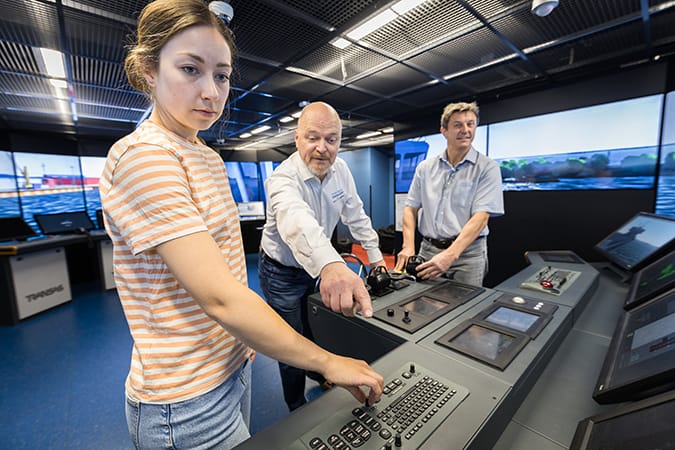Baltic Sea e-Nav. Shared waters – Same standards. Baltic Sea Partnership for Future Navigation
The project is targeted to decrease food waste and increase re-use of food waste and by-products. Project aims to impact on primary food production and food processing industry, related logistic operations, and consumers. In food production, waste is produced mainly due to the fact that whole raw material is not used in the final product. There is a need for those who can utilise produced excess biomaterial. Additionally, because of the potential threat to food supply chains and food security concerns from the Ukrainian war, it is crucial for Central Baltic countries to come up with strategies for reducing waste, maximising resource efficiency, and strengthening food supply chains. The projects consortium brings together institutes and organisations from Finland (Satakunta University of Applied Sciences and Satafood Development Association), Estonia (Estonian University of Life Sciences and Stockholm Environment Institute Tallinn Centre), Sweden (Swedish University of Agricultural and Sciences HS Consultant Inc.) and Latvia (University of Latvia.)
Results of the project are improved product cycles and chains in the food production, in processing industry, logistics and consumer behaviour. Project will enhance knowledge and capacity to develop a strategic framework and adopt circular economy solutions into food production and processing chain to increase re-use and decrease waste. This is achieved by building knowledge as well as mapping and analysing best practices, developing solutions and operating models, piloting the selected and developed solutions, and establishing virtual marketplace for producers and industry to offer their by-products or waste to re-users as well as utilisers to seek material they need. On the other hand, the project will change consumers behaviour to decrease waste and increase reuse. This
is achieved utilising newly developed technologies like smart labelling that will help consumers to evaluate better, e.g., edibility time of the food products as well as by communicative means. Beneficiaries can be divided into three categories:
• All stakeholders in the agri-food sector (national, regional and local authorities) are responsible for developing legal and political framework for circular bioeconomy
• Primary food production, food processing industry, i.e., companies, business associations, policy makers and local authorities
• Consumers as the ultimate users of food products
From the food production and processing industry point of view Finland, Estonia, Latvia and Sweden are all too small alone to produce enough food related bio-waste and side-stream biomaterials enabling efficient utilisation locally. The Central Baltic area forms a larger unity and hence, as close co-operation is built, it facilitates business and other activities, which are needed to establish more advanced utilisation of circular economy with new models and practices. Moreover, the societies and consumer behaviour of these countries are similar, therefore making close cooperation is necessary to ensure sustainable food production and consumption.
Considering the expertise of the partners in this project, the proposed project is novel as it adopts a holistic approach from farm to fork in order to implement circular economy principles in the food production and processing chain. This will enhance resource efficiency, waste reduction, and strengthen the resilience of food supply chains in the central Baltic region. This approach is not commonly practiced in the food industry and can contribute to a sustainable and secure future for the region. Furthermore, the project’s focus on modifying consumer behaviour and creating a virtual marketplace for producers and industry to offer their by-products or waste to re-users and utilisers seeking material is distinct. This platform can decrease waste and promote resource efficiency while also generating economic opportunities for producers and industry.
Additionally, the project’s concentration on developing closed-loop systems and eco-friendly transportation options to address potential disruptions to the food supply chains and food security of the Baltic region is commendable. Adopting these measures can enhance the region’s overall resilience and preparedness for possible food supply chain disruptions. Lastly, the project’s management of food waste compounds, like phosphorus waste, is vital to
maintaining food security in the Baltic region. Proper management of these waste compounds can help enhance agricultural productivity, soil quality, and decrease dependence on imported fertilisers while mitigating environmental impacts and creating economic opportunities.


